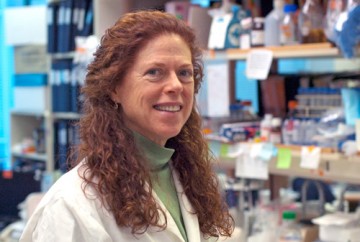Three faculty members have received 2014 LifeSciences British Columbia Awards from LifeSciences BC. These awards are presented annually to recognize individuals and companies that have made significant contributions to the development of B.C.’s life sciences industry.
The 2014 award winners in the Faculty of Medicine are:
John Webb, Professor in the Division of Cardiology, Department of Medicine
Innovation & Achievement Award

John Webb
In 2005, Dr. Webb and his team developed the first routinely successful percutaneous heart valve replacement procedure; a lifesaving, non-invasive procedure to replace the aortic valve in individuals who do not qualify for open heart surgery.
With more than 500 successful procedures having been performed at St. Paul’s Hospital, Dr. Webb and his team are now training others how to conduct the procedure. In 2011, St. Paul’s Hospital installed a new Virtual Teaching Laboratory, which allows Dr. Webb to offer real-time broadcasts and two way communication of the percutaneous heart valve replacement to medical professionals around the world.
Dr. Webb is the Director of Interventional Cardiology at St. Paul’s Hospital, Provincial Director of the Transcatheter Heart Valve program for British Columbia and the McLeod Professor of Transcatheter Heart Valve Therapy at UBC.
Elizabeth M. Simpson, Professor in the Department of Medical Genetics
Genome British Columbia Award for Scientific Excellence

Elizabeth Simpson
Dr. Simpson is an internationally-recognized leader in mammalian genetics and genomics, as well as a dedicated educator.
After joining UBC in 1999, Dr. Simpson spearheaded two large international collaborative projects aimed at developing “MiniPromoters”, or human DNA control elements that can drive gene expression in regions of the brain and eye. These MiniPromoters have many applications in academic and industry research but also serve as critical tools for clinical applications such as gene therapy. The MiniPromoter technology is being developed to enable gene therapy for disorders such as Alzheimer disease, Parkinson disease, and blindness, all of which are resistant to traditional therapeutic approaches.
An active proponent of translational approaches, Dr. Simpson has a history of commercial success with the fruits of her research. She fosters collaborations with industry and holds an impressive patent portfolio.
Dr. Simpson is a Senior Scientist at the Centre for Molecular Medicine and Therapeutics, and Associate member of the Department of Psychiatry. She is also an Investigator at the Brain Research Centre and a Founding Fellow of the Institute of Mental Health.
Robert Brunham, Professor in the Division of Infectious Diseases, Department of Medicine
Dr. Don Rix Award for Lifetime Achievement

Robert Brunham
Dr. Brunham is the Head of the Vaccine Research Laboratory at the UBC Centre for Disease Control. Until 2014, he was the Executive and Scientific Director of the British Columbia Centre for Disease Control (BCCDC).
In 2005 Dr. Brunham received the CIHR Partnership Award for exemplifying research excellence by bringing health research communities together. His belief in seeking fundamental understanding of scientific problems while maximizing their benefit to society has been characterized by a career of partnership across the broad breadth of medical biosciences including molecular biology, clinical investigation and public health studies.
In Chlamydia research, Dr. Brunham is a world authority. He has made seminal contributions to defining the clinical features of infection in women, determining the underlying mechanisms of immunity, and discovering protective antigens suitable for vaccine development. He has innovatively analyzed the impact of public health efforts to control Chlamydia and concluded that a vaccine will be essential to success.
Dr. Brunham is also well known for his work in elucidating the SARS genome, defining the characteristic clinical features of SARS as a clinical entity and tracing its distinctive epidemiology to underlying network transmission dynamics.
As well, Dr. Brunham’s contribution to understanding HIV is significant. He determined the major role of chancroid in concentrating accelerated HIV transmission among high-risk groups in Africa and the major role of HLA molecules in HIV resistance and susceptibility.
Read more about the LifeSciences British Columbia Awards and the 2014 recipients on the LifeSciences BC website.